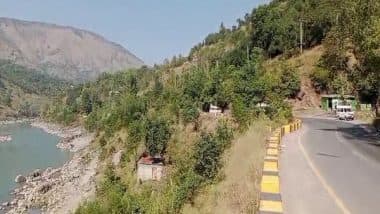Muzaffarabad [PoJK], October 28 (ANI): Residents of Pakistan-occupied Jammu and Kashmir are facing escalating challenges due to severe load-shedding, a crisis intensified by deforestation and climate change.
These issues, coupled with government inaction, have plunged the region into deeper turmoil. A local resident, Saad Hameed Kayani, expressed his frustration, highlighting the direct link between environmental degradation and the energy crisis.
He said, "The forest cover is rapidly receding. New plantations are not being established, while old trees are being cut down and many are lost to fires or used as fuel. Our region relies heavily on hydropower, making access to water essential for electricity production. As water resources dwindle, the frequency and duration of load-shedding have dramatically increased, causing immense hardship for everyone."
Kayani highlighted the stark contrast between the Pakistani government's apathy and India's proactive approach to renewable energy.
Also Read | India-China Disengagement Continues at Two Points in Demchok and Depsang in Eastern Ladakh.
"India has committed to generating half of its electricity from solar panels by 2030 and is actively promoting electric vehicles. In contrast, our government remains indifferent, preoccupied with its own political issues," he added.
Residents of PoJK are calling for immediate action to address the crisis. Without urgent intervention, the future of the region looks increasingly bleak, threatened by both energy shortages and ongoing environmental degradation.
Deforestation and climate change present significant challenges in Pakistan-occupied Jammu and Kashmir, impacting both the environment and local livelihoods. Reports indicate that forest cover has sharply declined due to illegal logging and agricultural expansion. This loss disrupts ecosystems, leading to a decline in biodiversity and increasing risks of soil erosion and landslides.
The region, highly vulnerable to climate change, is experiencing rising temperatures and erratic rainfall, which threaten water supplies and agricultural productivity. Additionally, glacial retreat exacerbates these challenges, heightening the risk of glacial lake outburst floods.
Effective management and restoration efforts are crucial to addressing these intertwined issues. However, instead of prioritising renewable energy initiatives, the government appears preoccupied with domestic political issues. (ANI)
(This is an unedited and auto-generated story from Syndicated News feed, LatestLY Staff may not have modified or edited the content body)













 Quickly
Quickly

















